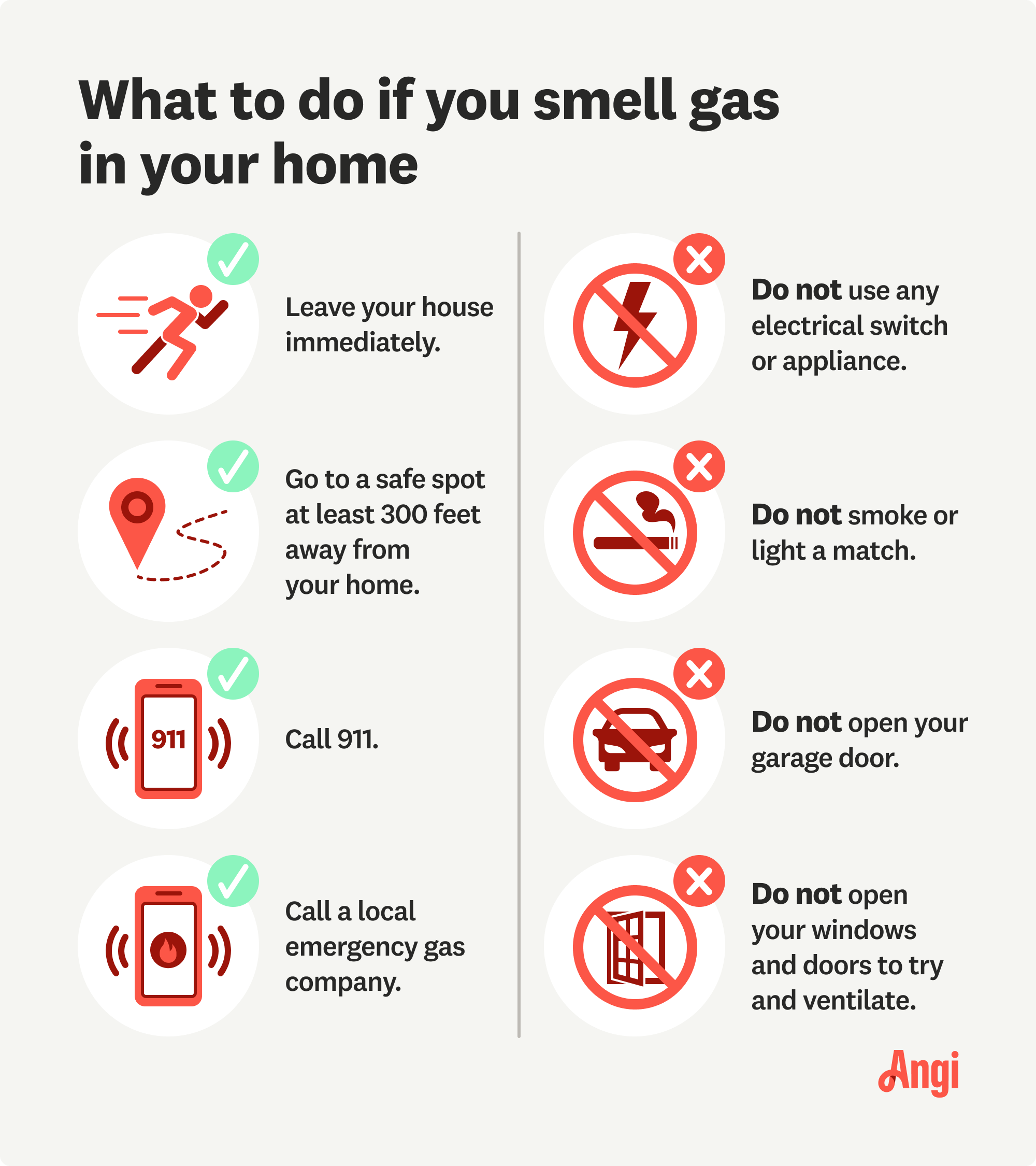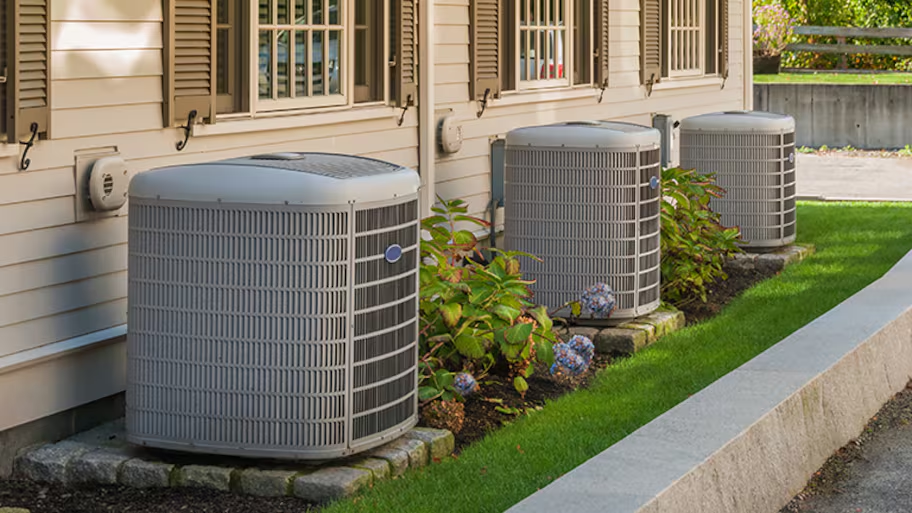
If you’re having problems with your air conditioner’s condenser, it may be time for an upgrade. Learn about the cost to replace an AC condenser in this guide.
Don’t shrug it off as a smelly inconvenience


Dust on an unused furnace will burn after turning the heater on for the first time in a while, and this is normal.
Change air filters every 30 to 90 days to avoid a burnt smell.
Schedule professional ductwork cleanings every three to five years.
Annual inspections and cleanings can help prevent smelly heaters and worse heater problems.
The temperatures outside have dropped, and your heater is on full blast. But wait, what’s that smell? Why does your heater smell burnt? While some burning smells from a heater are natural after a long summer with the unit sitting unused, they can also be a sign of serious trouble in less common cases. Here are seven reasons for a heater that smells burnt and what to do next when your heater smells like someone left the rolls in the oven for too long.
When the heater sits unused from spring to fall, it accumulates dust. So when the temperatures drop come winter, the heater will burn up that excess dust, leading to a burning smell.
Although an initial burning smell from a heater that’s just been turned on shouldn’t cause any problems, you can help avoid the smell by keeping up with regular furnace servicing and cleaning. Call in a pro to deep-clean and inspect your furnace in the fall so that it’s ready to run in winter—no burnt smells included.
Many furnace problems, including a smelly furnace, stem from dirty air filters. When the furnace filter is filled with dust and dirt, it puts more strain on the rest of the heating system. This can lead to overheating and a burning smell, especially if parts wear out.
It’s important to change your air filter regularly, every 30 to 90 days, depending on the type of air filter your furnace uses. If you can’t remember when you refreshed the air filter, it’s probably time to change it and see if that stops the burning smell.
Similarly to dusty air filters, your vents can also get clogged with dust and other debris that can smell burnt when hot air blows through the ductwork. Make sure to clean vent covers once per month, and hire a pro to inspect and clean your air ducts once every three to five years.
If you have smokers or pets with lots of hair in your home, or if your community is known for having poor air quality, you should have your air ducts inspected and cleaned more often.
If the burning smell is accompanied by the smell of plastic or rubber, it likely means there is something lodged in your air vents or in the heater itself. As the hot air blows through the system, it can start to melt or burn the stuck object.
You can check the vents around the house to look for a toy or other object stuck in the vents, but it’s still safest to have a furnace pro come check out the problem.
When you smell a burning odor coming from the heater, it could be an electrical issue. Is your furnace fan running with the thermostat off? Do you hear buzzing sounds while the furnace is on? These are additional signs that there could be damage to the heater’s electrical wiring.
Damaged wiring presents a risk of shock or electrocution, so don’t attempt to fix the electrical issue yourself. Call in an electrician or furnace repair pro immediately if you suspect electrical damage.
The heater’s exhaust vent or chimney flue is responsible for carrying harmful combustion gases, like carbon monoxide, outside of the home. But if the heater smells burnt, or if your furnace smells like gas, it could be a sign that the exhaust vent is blocked or damaged.
If you suspect that exhaust gases are leaking into your home, shut off the heater immediately, head outside, and call a pro in for an emergency repair.

Sometimes, the burnt odor you’re smelling isn’t a serious flaw but just a sign of a new heater. When you turn on a new heater for the first time, the chemicals from the manufacturing process may produce a burning smell for a few hours or up to a few days. If the smell worsens or persists for longer, call in a pro to inspect the furnace and check for the source of the problem.
There are several different issues that can cause a heater to smell burnt. While some are innocent, like the summer dust burning off the heater as it warms you on the first cold day of winter, other issues should cause more concern.
Problems like faulty electrical wiring or a blocked chimney can lead to serious hazards, like shocks, electrocutions, electrical fires, or carbon monoxide leaks. If you’re wondering why your heater smells burnt all of a sudden, it’s time to call in a local furnace repair pro ASAP to figure out what’s going on.
Install carbon monoxide alarms on every level of your home, in central locations, and outside bedrooms. Check all of your carbon monoxide detectors every month, and replace the batteries on a set schedule according to the manufacturer’s instructions.
Regular furnace maintenance is the top way to prevent burning smells or other unpleasant odors from your heater. Here are some maintenance tips to keep your furnace in good, odorless condition:
Change the furnace filters regularly—every 30 to 90 days.
Schedule annual inspections and furnace cleanings.
Keep 30 inches of clear space around your furnace.
Check vents monthly for dust, objects, and other debris.
Regularly dust and vacuum your home to minimize dust buildup in the heater and vents.
From average costs to expert advice, get all the answers you need to get your job done.

If you’re having problems with your air conditioner’s condenser, it may be time for an upgrade. Learn about the cost to replace an AC condenser in this guide.

HVAC replacement costs depend on a lot of factors, like unit type, size, and labor. See what you can expect to pay for HVAC replacement here.

Springing for HVAC maintenance costs may seem like an extra—and easy-to-ignore—item on your checklist, but it will save you money in the long run.

A central humidifier can make dry winter air more comfortable indoors. Before your installation, discuss these whole-house humidifier questions with a pro.

Learn how to reset your boiler safely with our comprehensive guide. Don't let heating issues disrupt your comfort this winter.

Take several factors into consideration when upgrading your HVAC system. Our guide will help you choose the right HVAC upgrade.